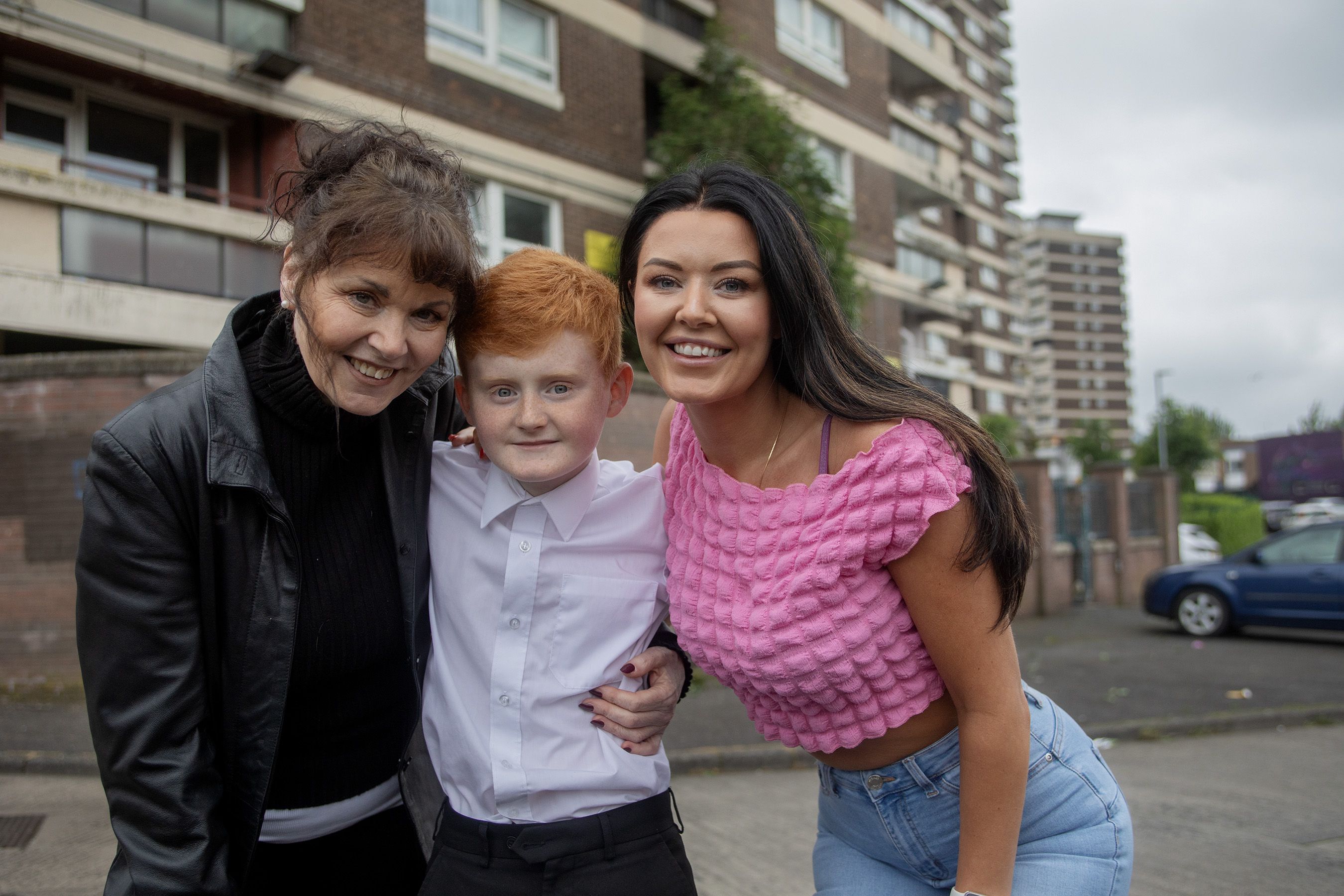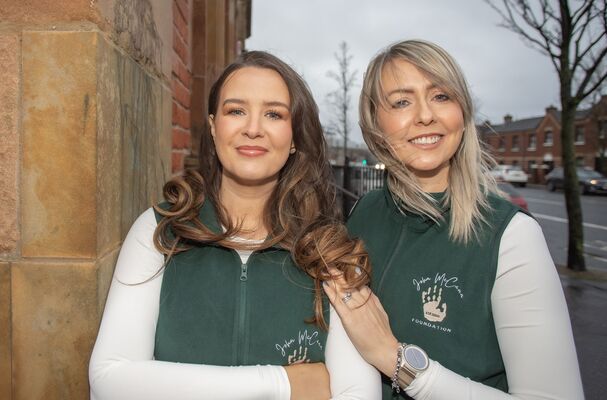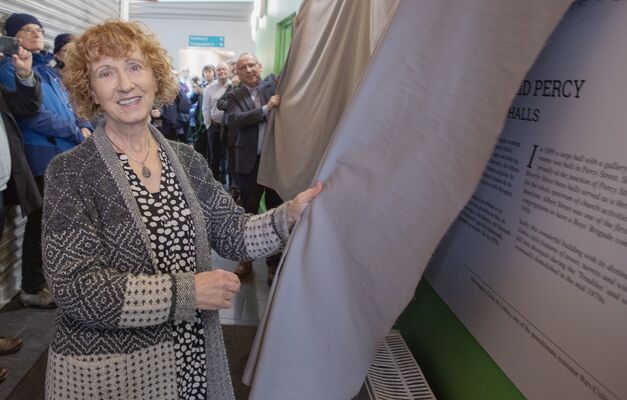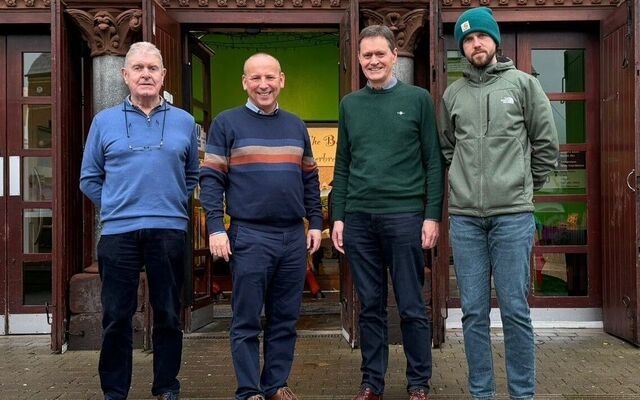A DOCUDRAMA about the lives of residents in the New Lodge flats is set to open the fifth Docs Ireland film festival in June.
Fresh from winning the prestigious main Dox:Award at the CPH:DOX festival in Copenhagen – one of the largest documentary film festivals in Europe – Alessandra Celesia’s film The Flats follows four people from the New Lodge in North Belfast as they revisit the collective memories that shaped their lives and the district they live in.
Emotionally taut, haunting in its authenticity and bursting with characteristically dark Belfast humour, The Flats invites the audience into both the past and the present of the tumultuous world of the New Lodge flats. The premiere takes place on Tuesday 18th June at 7pm in Cineworld, Odyssey Arena, and it is already sold-out.
The film is largely based around resident Joe McNally and his counselling sessions with befriending counsellor Rita Overend. Through their discussions the narrative of the film takes shape. Joe is suffering trauma from the Troubles which is being exacerbated by the drug dealing that he witnesses from his flat’s balcony. Through the re-enactment of past incidents in their lives, Joe and other residents in the flats, try to confront the trauma in their lives and escape the mental scars from their past.
Rita said the groundbreaking film would never have been made if it hadn’t have been for Alessandra.
“Alessandra Celesia is the filmmaker, producer and director and she is Italian, married to a guy from North Belfast and she lives in France,” said Rita, as we met at Oisín House, one of the flats featured in the film. “She has a lot of connections and comes backwards and forwards to see her in-laws so she knows North Belfast quite well.
A scene with Joe McNally in the docudrama
“The New Lodge is in a unique position really, geographically and also with what became known as the Murder Mile. Then you have the peace-line with the interface with Catholics and Protestants, so this always interested Alessandra, and the differences between the people and how they coped on both sides of the community. So she got the idea that she maybe wanted to focus on the flats, they are an imposing structure in the city and she got to know some of the different stories from the inhabitants and started to get to know people.”
Rita said he own part in the docudrama came about through her role as Joe’s befriending counsellor.
“Joe’s one of the main characters in the film," she said. "I got to know Joe when he came to me. Because of the traumas Joe suffered in his life, they were finding it difficult to get a counsellor to work with him because his descriptions were so graphic of what he had been through and what he endured. Joe is 57-years-old, so the docudrama is sensitive to his story – the story is built around Joe.
“He was nine-years-old when his teenage uncle was shot dead and murdered in a notorious shooting in a work yard around here. Joe was nine-years-old and Joe has really deep and entrenched trauma around that murder. His mother never got over it. So I was working with Joe whenever Alessandra appeared one day at our office in PIPS and she came over to me and asked if she could speak to me about Joe.
“Joe had begun a hunger-strike because he wanted to draw attention to, as he saw it, paedophilia and drug dealing around this immediate area and Joe had been doing different things to highlight this but he thought that he didn’t have a voice and this was all feeding his trauma. When he came to me he had started the hunger strike so we were trying to work with him on that and I said to Alessandra, I cannot speak to you about Joe, he is a client, he has confidentiality and there’s data protection that we have to be very aware of. So she said, what if I get Joe’s permission? Well, I said I’ll have to talk it over with my bosses around what the ethics are around that.”
Jolene and Sean this week ahead of the premiere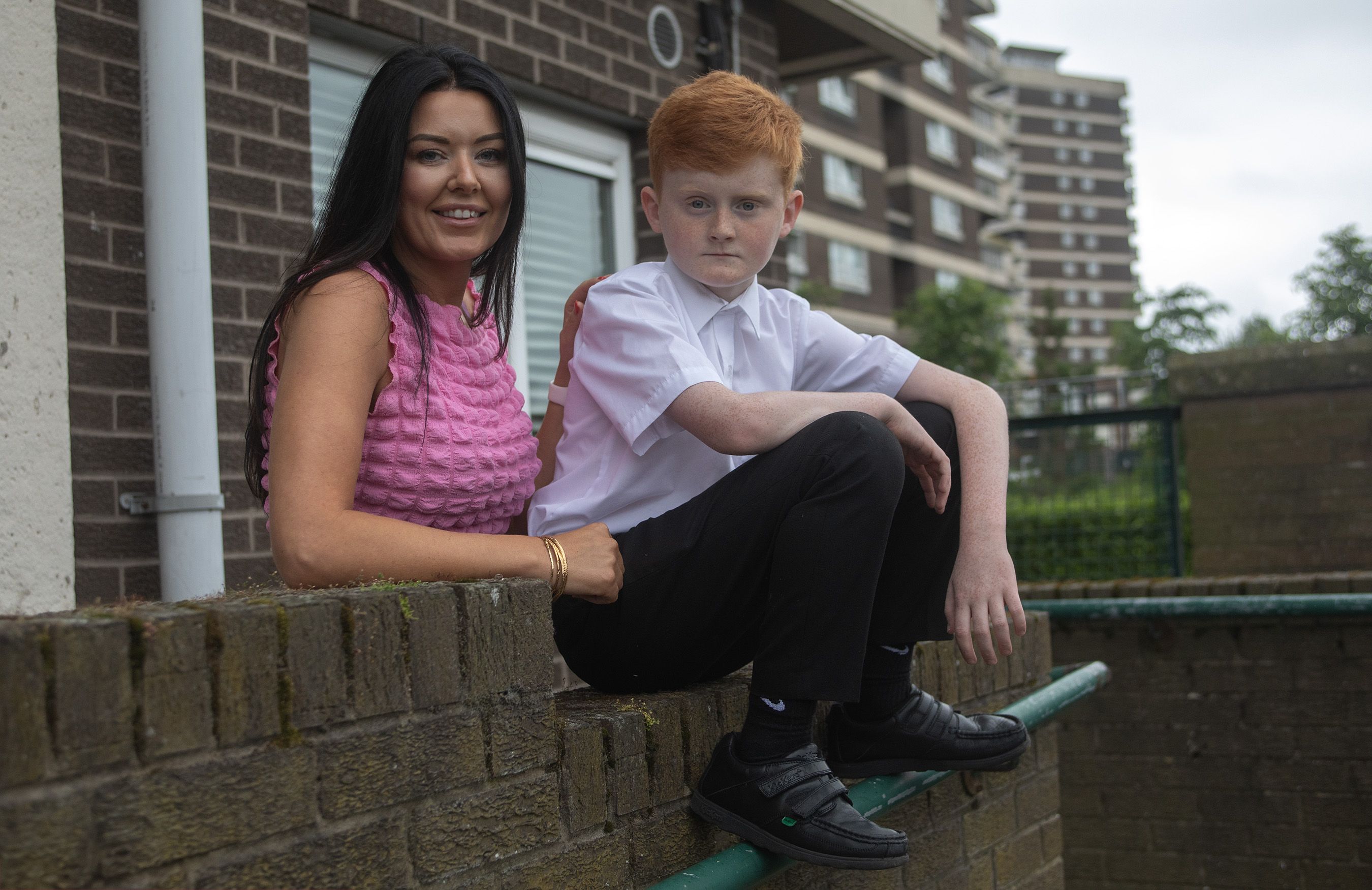
From there the docudrama took shape. From a story that was initially about the flats, organically it moved into the stories that the residents shared, and through Joe’s counselling sessions Rita becomes the narrator of the film. Then there are the news flashbacks of young people rioting in the 1970s and 1980s and the re-enactments of the trauma that residents’ experienced. One of the most moving scenes is the re-enactment of the wake of Joe’s favourite uncle.
Rita explains where the idea for the re-enactments came from.
“In the course of talking, Alessandra said this is the way I would like to take this – we do the sessions and through the discoveries of what Joe talks about in the sessions we can then contextualise it, which is where the docu-bit comes in where you have flashbacks to the Troubles from this very area and then the actual trauma, the losses, the shootings, the bombings, the killings, as the backdrop. So in the course of her discussing all of this, she really identified with that and she wanted to have a human aspect, not just another documentary about the Troubles.
“Alessandra’s own empathy and sympathy comes through. Her love of North Belfast which she has gauged through her own family and John her husband, and her hope for the future and her characters that she’s met, she’s encapsulated all that within it.”
Rita stressed that the film is “not all negativity”, pointing to Jolene’s character.
Within one of the re-enactments Jolene Burns becomes Joe’s mother and 12-year-old Sean Parker plays the young Joe. But Jolene’s own personal story is also told in the film. Jolene, is a singer, and wrote and sings the songs that feature in the film. She says the lyrics came to her during filming. She laughs when recalling that the song she wrote about the New Lodge is being compared to a James Bond song.
“I tell a bit about myself in the film,” said Jolene. “Drugs are affecting a lot of people here in the community. My sister, she is now dying in a hospital bed: can’t speak, can’t walk, can’t talk, can’t eat, can’t do nothing. She has been that way for six years, being trapped inside her own body – being able to film that was the hardest part for me, to be able to talk about it, feel the trauma.
Jolene on screen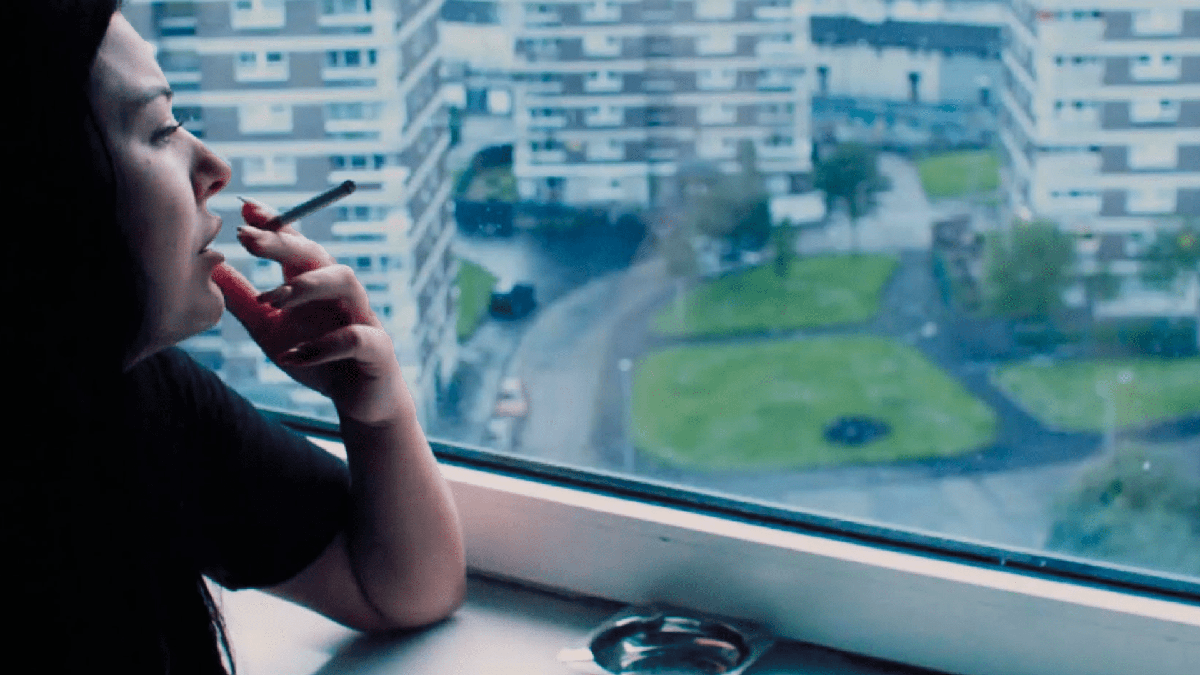
“Mental health issues are a big part of North Belfast and there are a lot of suicides and nobody’s talking about it and nobody wants to know about it. But the film also shows that this is a nice place and we can move on. I’m a mum, I have a good job and a lot of good stuff is happening to me. This is an area where I grew up. I’ve lost two friends to suicide, my sister is dying of drugs and I feel like I’m getting to speak about it.
“The film has helped me because I’ve started writing my own songs. I was always frightened of putting my own songs out there because of what people would think of it but I am now doing an awful lot for myself that I wouldn’t have done ten years ago and I’m breaking out of the mould and that’s reflected in the film.”
One of the residents, Angela Benson, has died since filming. She shares the screen with Jolene in several notable scenes. “I had so much fun filming with her,” says Jolene.
Twelve-year-old St Malachy’s pupil Sean Parker plays the young Joe McNally in the re-enactment scenes. He says his classmates are asking him for his autograph because he’s starring in a film.
“I really like Joe because you could understand him and he told good stories as well too and I liked his wee dog Freedom,” he said. “He helps people as well and he also gave me a fiver last week.
“From my point of view it was good to be in the film because I got to meet new people and also to experience what it was like to be in a film.”
Rita says that we are still living in a “very raw post-conflict society”.
“Within the film there is the pathos and the tragedy,” she said. “But the mainstay of the story is that they (the New Lodge) have stayed a cohesive community and there’s still the humour which Belfast people are known for.”

